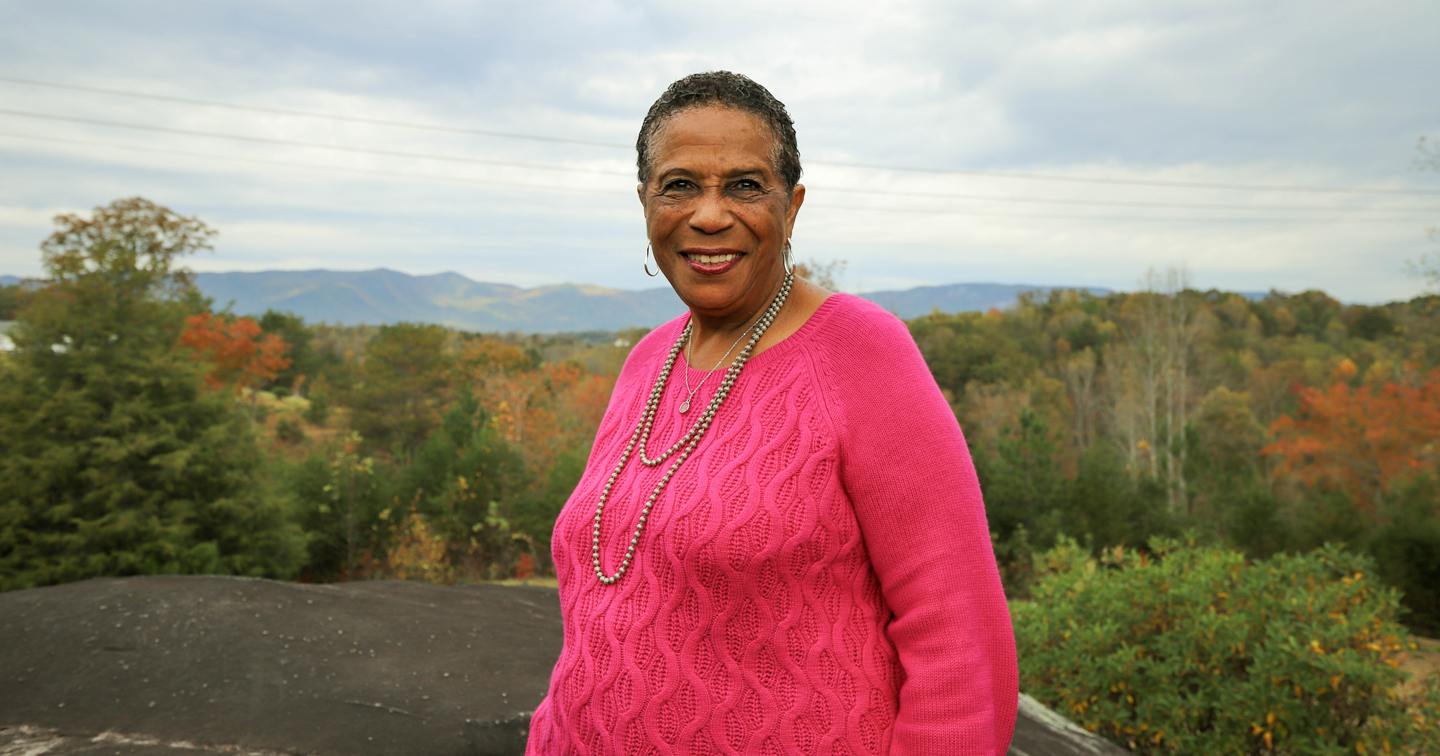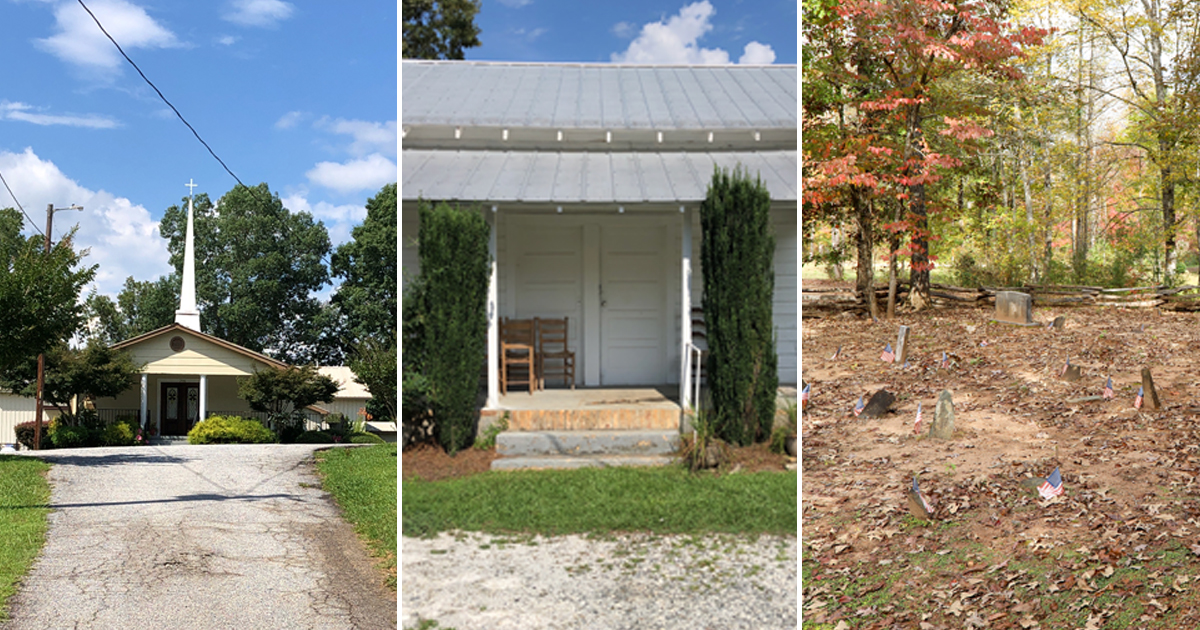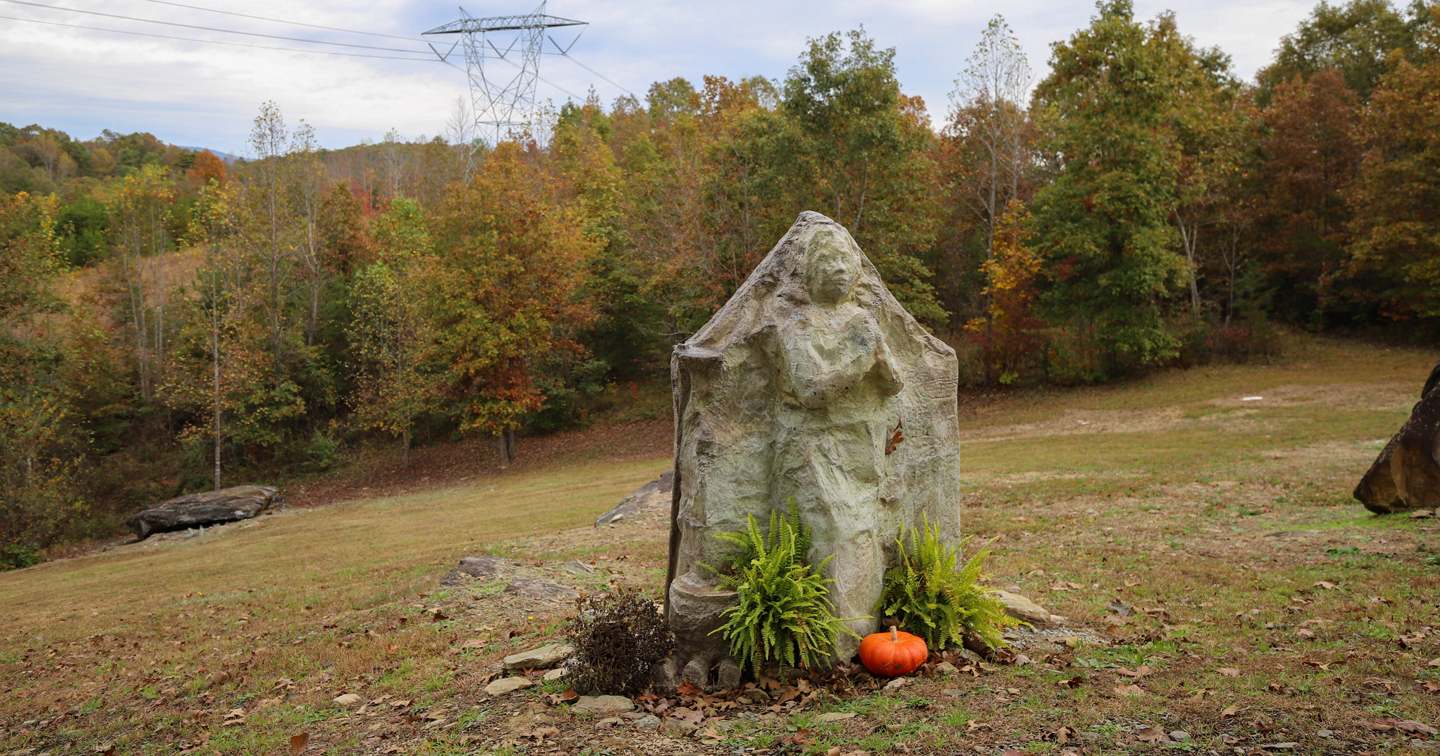We're hiring: Land Stewardship Specialist
This full-time position plays an integral role in our Stewardship and Land Management team by conducting annual monitoring visits to properties protected by conservation easements, interfacing with landowners, compiling reports, and more.
Historic Soapstone Church and grounds permanently protected
October 20th, 2022
The six-acre property home to the historic Soapstone Baptist Church in Pickens County has been permanently protected through a conservation easement. In addition to the church’s leadership, partners instrumental in this important conservation project include the South Carolina Conservation Bank, Upstate Forever, and the Upstate Land Conservation Fund.
Soapstone Baptist Church was established more than 150 years ago in Liberia, a small community settled by formerly enslaved African Americans and their families looking to start new lives in freedom after the Civil War. On its namesake soapstone outcropping and perched atop a ridge looking toward fields, forests, and the Blue Ridge Escarpment, the church has served the community as a place of worship, fellowship, and education for well over a century.

Mable Clarke stands atop one of the iconic soapstone outcroppings overlooking the Blue Ridge Escarpment in Pickens County.
Mable Owens Clarke — the sixth-generation steward and matriarch of Soapstone — was integral to the project. For more than two decades, Mable conducted a monthly fish fry that drew appetites from across the region to raise funds to pay off the church’s mortgage. She continues to fulfill a promise made to her late mother to keep the doors of Soapstone open and preserve the church’s legacy.
Mable explained, “my mother called me to her dying bed and asked me not to let the doors of Soapstone Baptist Church close. I did make that promise to her and to God that I would keep the doors of Soapstone Church open. I met with Upstate Forever, and they saw the beauty and history there and they have helped us to preserve the grounds and all the beauty that lies there.”
The conservation easement placed on the church property ensures that the six acres on which the historic church, schoolhouse, and slave cemetery rest are permanently protected from future development, such as residential subdivisions or commercial operations.

The rebuilt church, 1928 schoolhouse, and slave cemetery that dates back to the 19th century.
“This conservation easement will go a long way to ensure this historic place of worship will always be available to the community,” said Reverend Chester R. "Chet" Trower, Pastor of Soapstone Baptist Church. “In a time when the stories of historically marginalized groups seem to be subject to systematic cultural erasure, this easement is a small but important step to ensure that the rich history of the Liberia Community will never be lost.”
“We are proud and profoundly humbled to have been trusted to hold and steward the conservation easement on Soapstone Baptist Church,” said Scott Park, Upstate Forever’s Glenn Hilliard Director of Land Conservation. “Just as this sacred land and the stories of those who have held it dear for generations have persevered, this protection will help ensure the efforts of Joseph McJunkin, Lula Mae Clarke, Mable, and countless others are not lost as development pressure extends to rural corners of the Upstate.”

This sculpture by Keith L. Andrews, titled “A Praying Woman Rising from the Rock,” was unveiled in 2021 and commemorates the matriarchs of the Liberia community.
Funding from the South Carolina Conservation Bank and Upstate Land Conservation Fund made this important conservation project possible.
“Conservation success in our state starts with one person’s passion for a special place,” commented Raleigh West, Executive Director of the South Carolina Conservation Bank. “We applaud Ms. Mable’s determination to protect Soapstone and are honored to have been a part of it.”
BRIEF HISTORY OF SOAPSTONE BAPTIST CHURCH
The community of Liberia was established in Pickens County in 1865 by formerly enslaved African Americans and their families. Shortly after, Joseph McJunkin cleared a small area and created a brush arbor as a place of worship for the community. It was known as Soapstone for the signature rock outcroppings dotting the land. In time, the residents of Liberia pooled funds raised by selling crops to buy lumber and the original Soapstone Baptist Church was built. A one-room schoolhouse was erected beside the church in 1928.
In 1967, members of the Ku Klux Klan burned down the original church. The schoolhouse was spared. Led by Mable Owens Clarke’s mother, Lula Mae, the effort to rebuild Soapstone Church was completed within one year. The cinderblock structure has stood for 55 years.
In 2007, surveyors located the slave cemetery — the exact location of which had been lost to time — on the six-acre property. A volunteer effort uncovered the cemetery in a previously wooded area.
When a financial loan for an addition to the church came to maturity in 2020, ownership of Soapstone Baptist Church was almost lost. A momentous community fundraising effort enabled the loan to be paid off in the 90 days stipulated by the bank. Protection of the six-acre property through conservation easement was completed in 2022.
PLANS FOR SOAPSTONE AND A PRESERVATION ENDOWMENT
Soapstone Baptist Church continues to hold regular services and maintain the cemetery, with plans to restore the schoolhouse and become a focal point on an African American heritage trail in the Upstate. To preserve the integrity of the buildings and grounds and to promote the property's use as a historic site, the church and community members have recently established the Soapstone Preservation Endowment. The endowment will be used for capital improvements or repairs necessary to preserve, protect and promote the site's rich history.
"The story of Mable and Soapstone Church are reminders of both egregious chapters in our history and at the same time the power of faith and perseverance. It is vitally important that we pull together to protect not just special historic sites like Soapstone but even more that we claim and learn from the history of its people and their stories. The newly created Soapstone Preservation Endowment will help chart that future,” added Carlton Owen, President of the Soapstone Preservation Endowment.
"The history of Soapstone Church and the Liberia community tells a story of freedom, faith, and family. These steps to protect this special place will help to shine a light on our region’s shared past and inspire a brighter future for all,” added Diane Smock, co-founder of the Soapstone Preservation Endowment.

